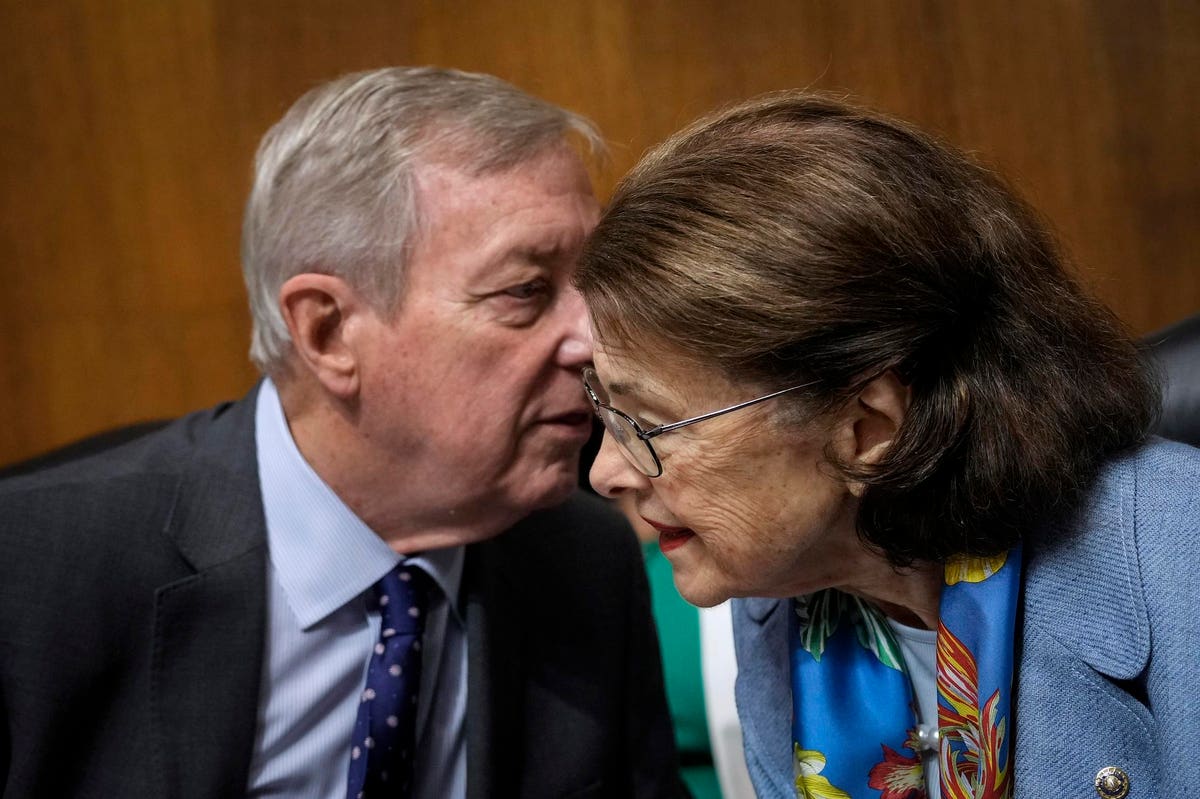Senator Dianne Feinstein’s death at age 90 seems to have agitated further the debate about Congressional age and term limits. On the one hand, the long-term Democrat from California is lauded for being the first female mayor of San Francisco, then one of the first female state senators, elected on the same night as former Senator Barbara Boxer. Feinstein leaves behind an impressive record. Why the continued criticism of her age and her need for assistance at the end of a distinguished career fueling the call for mandatory retirement?
Despite Feinstein’s age when she ran for re-election in 2018, her constituents sent her back to Washington for a sixth term. After being diagnosed with shingles early this year and suffering from encephalitis and Ramsay Hunt syndrome, Feinstein announced in February that she would not seek re-election in 2024. Ever the dedicated politician, she insisted on finishing what she started.
While her death provides the perfect chance to celebrate her many accomplishments, there is no respite from the ageist and ableist rhetoric about being too old to serve and requiring a wheelchair. In a CBS broadcast illuminating Feinstein’s career after her death shared on YouTube, ageist and ableist comments are prominent.
“Why a 90 year old is in politics is the more disturbing thing,” read the top comment. The 33 comments in reply supported the ageist sentiment.
“There should be no reason that someone who is 90 should be voting on laws for the upcoming generations,” wrote another.
“Despite anyone’s politics we have to all agree. It’s crazy she was still in power until her death. She was 90!”
At the time of this writing, the majority of 2,225 comments were ageist and ableist.
Exactly two months before her death, I published the article, Mitch McConnell And Dianne Feinstein Illustrate Challenges Of Congressional Age And Term Limits. It conveyed how challenging it would be to institute a fair and equitable way to address the age as a criteria to hold office. Some of those challenges are worth repeating here.
Although Congress has been asked to consider age or term limits, not only are those actions fraught with challenges, they will not eliminate the possibility of future Feinsteins. The biggest problem with setting an age limit is that age does not equal ability. People age differently–physically and cognitively. That means the mental acuity of one 90-year-old cannot predict the mental acuity of anyone else at the same age.
Moreover, age limits do not exist in Congress because members have never been willing to limit the possibility of their extended service. Finally, how can we reliably measure mental acuity without political influence or motivation?
What is Ageism?
Ageism is when someone is judged based on how old they are. Ableism is when someone is judged based on assumptions of how their mind or body functions. In reality, plenty of younger people live with disabilities, and plenty of older people do not.
Forbes’ political staffer Sara Dorn writes, “Instilling age- and term-limits is also a logistically complicated process that would likely require a constitutional amendment, which would need either the votes of two-thirds of both the Senate and the House, followed by approval from three-fourths of state legislatures, or a request from two-thirds of states followed by a constitutional convention in which three-fourths of states must ratify the amendment.”
Term limits, while more practical, will not ensure a solution either. After all, when Feinstein was last elected in 2018, she was already well into her 80s. Moreover, people of any age can become ill due to disease or accident.
Why not take this time to abstain from an obsessive focus on age and celebrate a life well lived in the service of the people?
Read the full article here





